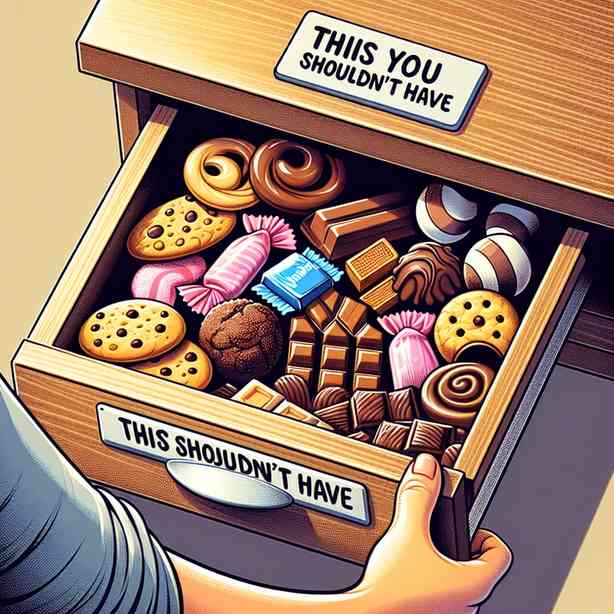
In today’s fast-paced world, where time seems to slip through our fingers, the allure of convenience often trumps health and mindfulness. One such convenient temptation can be found hidden within our homes—the snack drawer. While it may seem harmless, what often lies within can have a significant impact on our health, productivity, and overall well-being. This exploration delves deep into understanding why the snack drawer may not be the best addition to your life and offers insights into healthier alternatives and practices.
To begin with, let us understand the concept of a snack drawer. It is typically a designated space in our kitchens or offices where we store various snacks, often ranging from sugary treats to salty chips. While having a snack drawer can promote convenience and instant gratification, it can also spur impulse eating, making it difficult to maintain a balanced diet. Research shows that when snacks are easily accessible, we are more likely to indulge in them, often without even realizing how much we consume. This subconscious snacking habit can contribute to unwanted weight gain and an overall decline in our nutritional intake.
Moreover, the types of snacks we often store can further complicate matters. A standard snack drawer tends to be filled with processed foods, laden with unhealthy fats, sugars, and artificial additives. These ingredients can lead to a plethora of health issues, including increased risks of obesity, diabetes, and heart disease. By relying on these packaged snacks for nourishment or energy, we may inadvertently deprive our bodies of vital nutrients that whole, unprocessed foods provide. Consequently, making the switch from a snack drawer filled with junk food to one stocked with healthier options can noticeably enhance our physical health as well as our cognitive function.
The psychological aspect of snacking is also vital to consider. Studies indicate that snacking can become a mindless activity driven by emotions rather than hunger. A snack drawer that is full of unhealthy options might encourage binge eating during stressful moments or when seeking comfort. Instead of turning to food in times of distress, it can be more beneficial to seek alternative coping mechanisms, such as meditation, exercise, or engaging in creative pursuits. By changing the way we view snacks and their purpose in our lives, we can foster a healthier relationship with food.
What, then, can we do about our snack drawers? The answer lies in re-evaluating the contents and purpose of these spaces in our homes. First and foremost, consider emptying out your current snack drawer and assessing every item based on its nutritional value. If the snacks on your shelf are high in sugar and low in nutrients, it may be time to say goodbye to them. Instead, consider integrating whole foods such as fresh fruits, nuts, seeds, and whole grain alternatives. These snacks not only satisfy hunger but also provide sustained energy without the sugar crash that often comes from processed snacks.
Additionally, portion control is crucial. Even healthy snacks can lead to overeating if we do not manage to regulate our portion sizes. Instead of keeping large bags of nuts or seeds within reach, opt for pre-portioned containers or smaller bags. This conscious practice can help prevent calorie overload and encourage mindfulness while snacking. Furthermore, keeping your snacks visible can make them more appealing. Create an organized snack drawer that showcases colorful fruits, vegetables, and nutritious treats, making them the go-to option when cravings hit.
Another layer to consider is meal preparation. Preparing meals in advance can be incredibly beneficial in combating the urge to snack excessively. When we have planned meals waiting for us instead of relying on snack drawers, we’re less likely to reach for fast, unhealthy options. Creating a weekly meal plan, along with healthy snacks, can streamline your culinary routine and reduce the temptation of impulsive snacking.
Incorporating hydration is also an essential aspect to consider while addressing the snack drawer. Sometimes, our minds trick us into thinking we are hungry when, in fact, we may just be dehydrated. Keeping a water bottle nearby and making hydration a part of your snack routine can help mitigate unnecessary cravings. Staying adequately hydrated improves our focus and energy levels, reducing the need to rely solely on snacks for quick bursts of energy.
Additionally, it might be worth exploring the concept of mindful eating. Instead of eating on the go or in front of screens, take the time to enjoy your snacks. By savoring each bite and focusing on the flavors and textures, you can enhance your enjoyment of the food while also recognizing the body’s hunger signals more effectively. The practice of mindfulness can help you develop a more intuitive understanding of your eating habits, leading to healthier choices and a more substantial enjoyment of food.
Finally, let us address the social aspect of eating. Often, we find ourselves snacking in social settings, and the influence of others can lead to overindulgence. It is essential to communicate with friends and family about your desire to make healthier choices. When surrounded by supportive peers, it becomes easier to stay committed to a healthier lifestyle. Sharing healthy recipes or hosting potlucks with nutritious meals can foster a supportive environment and enhance one’s motivation to maintain a wholesome approach to food.
In conclusion, while the convenience of a snack drawer may seem appealing, it can have unintended consequences on health, well-being, and productivity. By thoughtfully assessing the contents of your snack drawer, you can foster an environment that promotes healthier eating habits. Emphasizing whole foods, portion control, meal preparation, hydration, and mindful eating can help you cultivate a more balanced relationship with food. Moreover, embracing social support can empower you on this journey toward healthier snacking. Ultimately, rethinking your snack drawer can be the first step towards a more enlightened and health-conscious lifestyle. Remember that every small change counts, and with commitment and creativity, you can transform your approach to snacking and overall nutrition.


